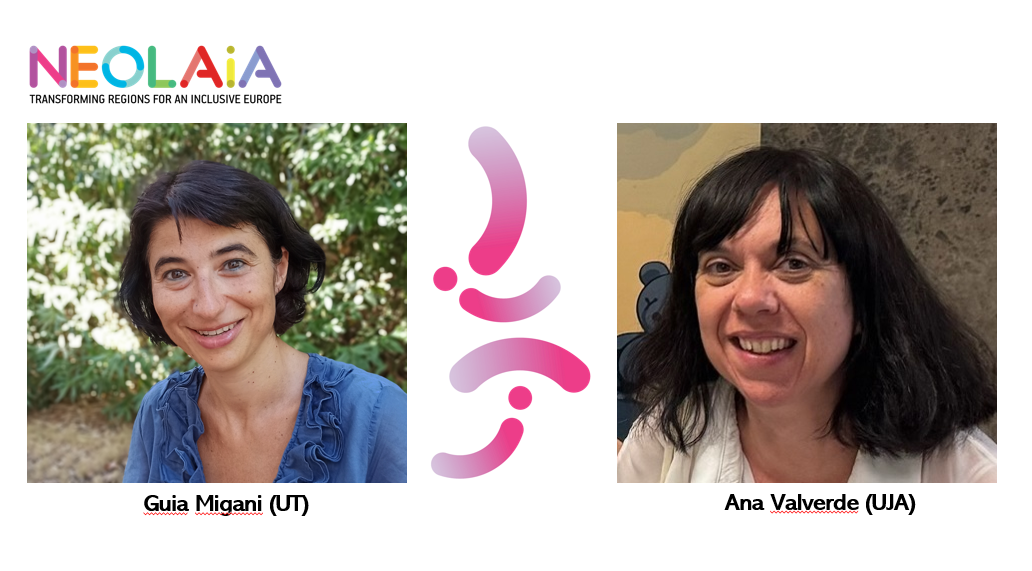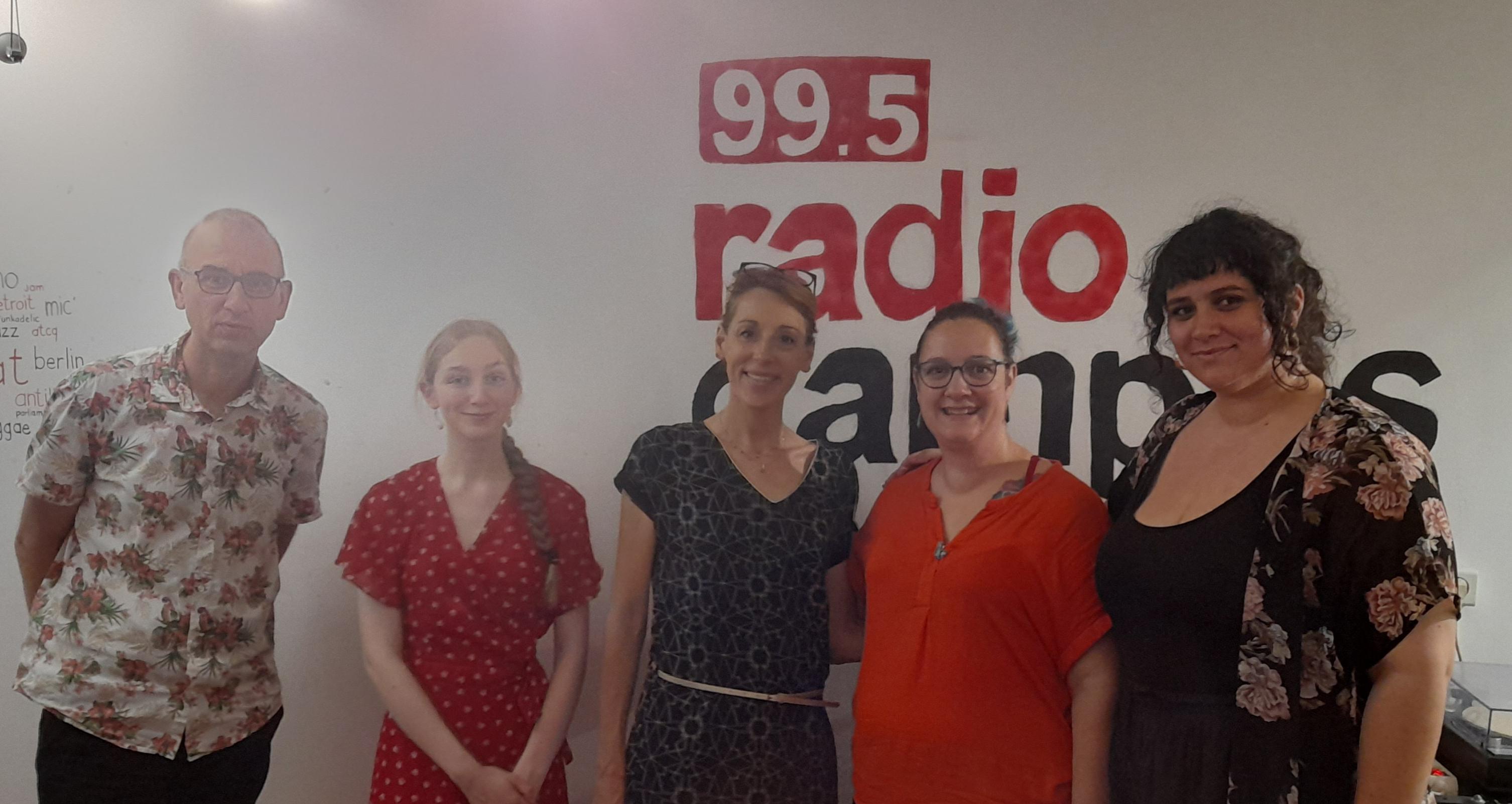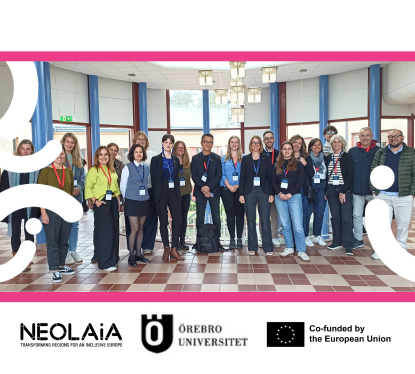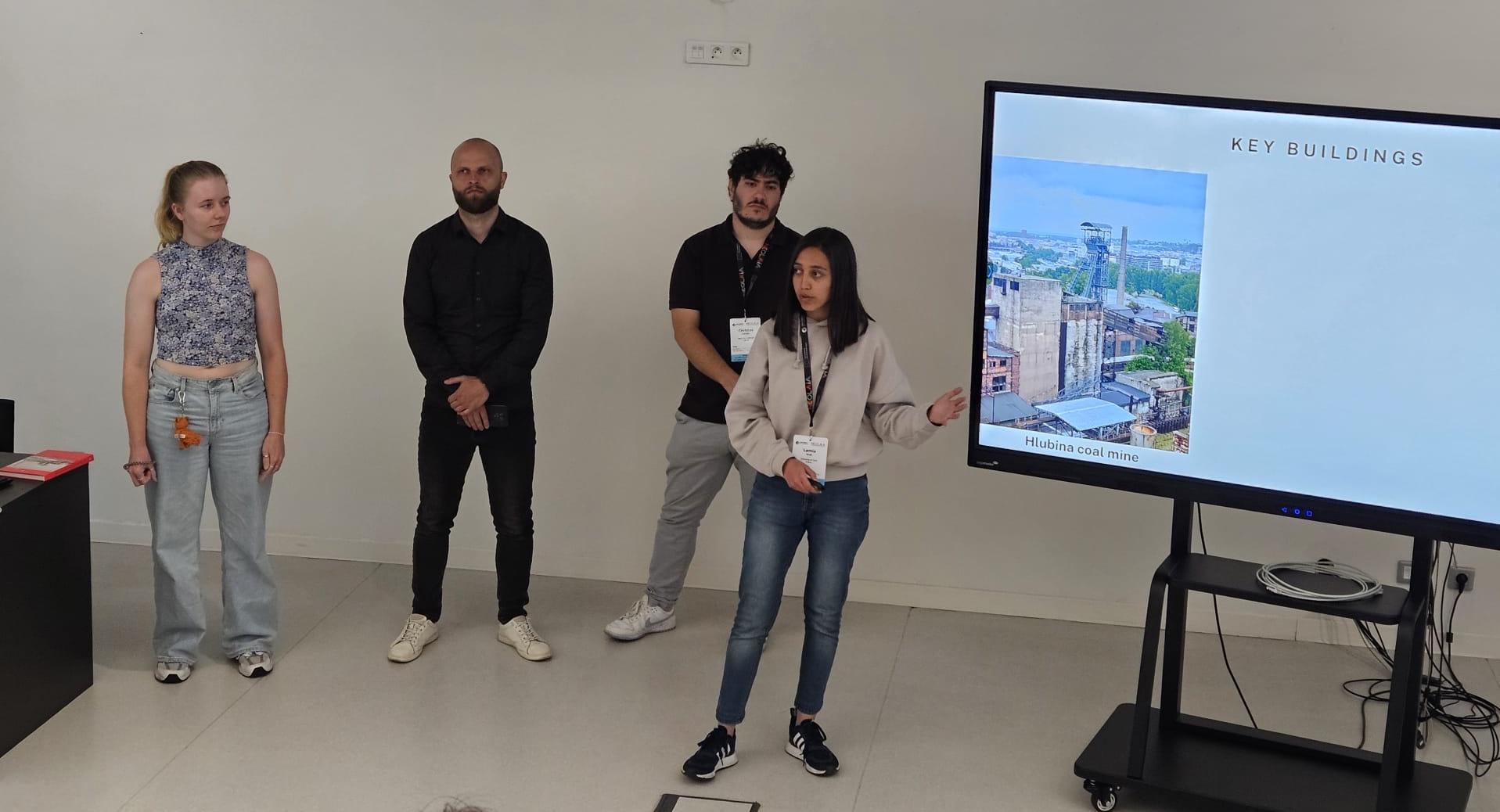June 2025: An early stage researcher from the University of Jaén hosted for three months at the University of Tours as part of the NEOLAiA Mentoring Programme

on the July 21, 2025
Since February 2025, NEOLAiA has been offering early stage researchers a new form of support at the European level: an 18-month mentoring programme providing personalised guidance from an academic based at one of the partner universities.
Since June, the 12 mentees selected for this first edition have entered the second phase of the programme: each has been paired with a mentor from the same disciplinary field, with regular exchanges planned throughout the 2025/2026 academic year. The programme also includes a short-term mobility at the mentor’s home institution. The mentor-mentee relationship is designed to be flexible, built around shared objectives: supporting young researchers’ career development and enhancing their international exposure. Through this initiative, NEOLAiA contributes to European priorities for scientific excellence and career support for researchers (Human Resources Strategy for Researchers – HRS4R).
Ana Valverde Gonzalez, a PhD candidate in English Philology at the University of Jaén, has thus established a collaboration with Guia Migani, Senior Lecturer in Contemporary History at the University of Tours. Hosted for a three-month research stay at the CETHIS laboratory (from June to August 2025), Ana reflects with her mentor on this formative experience.
(Translated from Spanish/English)
1 – What motivated you to join the NEOLAiA mentoring programme?
Ana: I saw it as a great opportunity to broaden my research networks and strengthen my interdisciplinary knowledge. Thanks to a BIP course I attended in Örebro, I had the chance to meet Guia Migani, who is now my mentor. After seeing her again at the University of Tours last year, I thought it would be an excellent opportunity to study with her, benefit from her historical expertise, and incorporate that perspective into the introduction of my thesis.
Guia: I met Ana during a history BIP held in Örebro two years ago. I was keen to continue our exchanges: I hope to provide her with a historical lens, and to be enriched by her linguistic perspective in return.
2 – What are the expectations of the programme, and what objectives have you set together?
Guia: It is essential for me that Ana can use this time to make real progress with her thesis writing. Away from her daily responsibilities at university, she is able to dedicate herself fully to the library and make the most of our resources to advance her work.
Ana: The programme sees these mobilities as an exchange between mentor and mentee, a way for the young researcher to make the most of their mentor’s expertise. Guia has been offering me her full support and knowledge in her field. Also, as she knows, I wanted to use this time away from Jaén to focus as much as possible on writing my thesis. Being at the CETHIS lab is an exceptional opportunity: I’ve found it to be an ideal environment for concentration and intensive writing.
3 – You are the first pair to have taken part in a mobility as part of the programme. What does this involve, and what benefits have you observed so far?
Guia: I believe it’s valuable to discover different research practices and to help expand a PhD student’s network. It’s also a period during which they can concentrate exclusively on their work, without other tasks to manage.
Ana: As I mentioned, it’s an excellent way to broaden your network and benefit from your mentor’s knowledge and experience – in my case, Guia Migani’s historical approach. I’ve already met several PhD students from the CETHIS lab, with whom I’m exchanging ideas and experiences. And I can work on my research in peace, free from other obligations.
4 –You are both actively involved in the NEOLAiA alliance. In your view, how does this European dynamic benefit early stage researchers?
Guia: NEOLAiA can greatly support young researchers by allowing them to build networks beyond their home university, to discover other research approaches, and to develop new ideas for their work.
Ana: As Guia says, NEOLAiA is a wonderful opportunity for young researchers to connect with other universities and areas of expertise. The programme also provides the funding needed for these mobilities. For instance, I would not have been able to spend this time in Tours without the grant offered by the programme. That would have prevented me from gaining the knowledge and making the connections I’m currently experiencing at the University of Tours.
5 – How do you see your collaboration continuing after the end of the mentoring programme?
Guia: Ana’s research is fascinating, and our discussions on narratives, memory and historiography are very stimulating. I will certainly keep her expertise in mind for future research projects on these topics.
Ana: Guia’s work is truly inspiring. I’ve read several of her articles, and her research on migration particularly resonates with me. So far, we’ve had many discussions on narratives, memory and historiography. But I would also love to invite her to Jaén to hear her speak about her expertise on migration. I believe it’s one of the most important topics today, and once I’ve completed my thesis, I’d like to continue researching in this field if possible.



